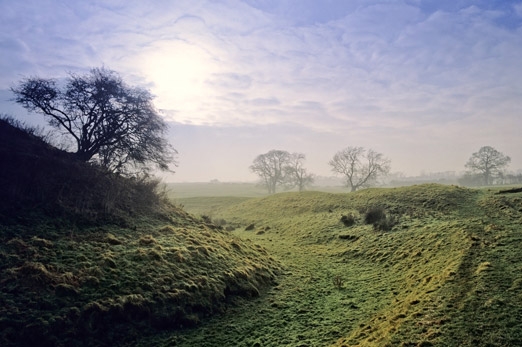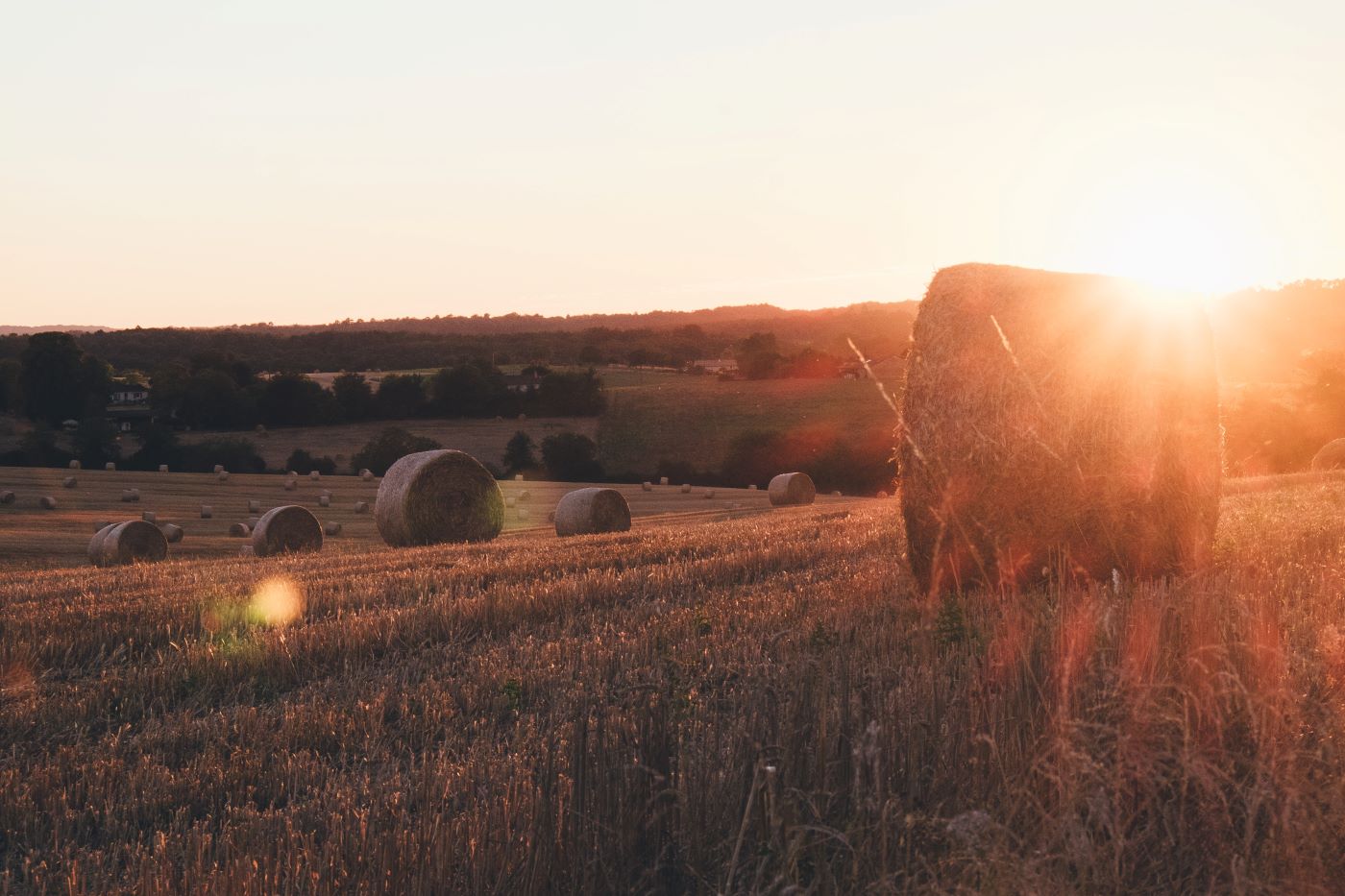With polls showing clear public support for stronger environmental protections and greener farming subsidies post-Brexit, how can domestic policy best deliver these for the countryside in the future?
What next for rural England?
 The future may be uncertain, but there is hope.
Shutterstock
The future may be uncertain, but there is hope.
Shutterstock
‘Post-Brexit policies should promote investment.’
 William Andrews Tipper is head of sustainable business at environmental charity and think tank Green Alliance
William Andrews Tipper is head of sustainable business at environmental charity and think tank Green Alliance
The loss of CAP in its current form will not be mourned by anyone who cares about nature or the future of farming. CAP has propped up a system in which oases for nature exist in an increasingly barren countryside. So it’s encouraging that 102 MPs have already signed our pledge to match or exceed EU protections and support farmers in creating a richer countryside for nature.
The Government now needs to think very differently about how to improve the UK environment. Public funding will still be important, but not everything should be, or needs to be, paid for from the public purse. Together with the National Trust, we’ve developed the idea of Natural Infrastructure Schemes, whereby farmers are paid to manage land in ways that prevent flooding and water pollution. Funding would come from downstream organisations, such as power and water companies, who would otherwise have to invest in infrastructure themselves to avoid these problems.
Many businesses profit from nature, and the best are already working with their supply chains to improve the health of the natural assets that support them. Post-Brexit policies should focus on the potential for high environmental standards and financial incentives to promote investment in soils, pollinators and clean water, to the benefit of business, farmers and the general public.
‘We must seize this moment.’
 Lord Norrie is an active champion of the natural world whose work for greener legislation is explored in his new memoir, Portals of Discovery (Book Guild)
Lord Norrie is an active champion of the natural world whose work for greener legislation is explored in his new memoir, Portals of Discovery (Book Guild)
We are now in uncharted waters as the Government ponders how environmental and countryside legislation will evolve, post-Brexit. Without the policy drivers provided by the European Union (EU), there are concerns that some of our most important protections could be lost or watered down. As a lifelong environmentalist, I hold a more optimistic view, which is that we must seize this moment as an opportunity to ensure that the environment is centre stage in Government deliberations.
We have done this before without the prodding of our European partners, through far-sighted legislation such as the 1949 National Parks and Access to the Countryside Act, which set up National Parks, paved the way for nature reserves and brought enhanced public access to the countryside. Similarly, the 2009 Marine and Coastal Access Act brought stronger protection for our seas and the promise of a continuous path around the coast of England and Wales.
Of course, none of these achievements would have been possible without the foresight and dedication of many of us in the voluntary sector. Our collective role in working for such protections has never been more important. CPRE’s members and groups have a vital role to play in inspiring our politicians to act in the long-term and wider public interest.
‘We cannot simply translate the status quo.’
 Jenny Jones, the Baroness Jones of Moulsecoomb, is a Green Party peer in the House of Lords
Jenny Jones, the Baroness Jones of Moulsecoomb, is a Green Party peer in the House of Lords
This summer I walked with my family out of London towards my new home in Dorset. The countryside we passed through looked green and pleasant, but in the past century it has been sterilised by intensive agriculture. My grandchildren have been left ignorant of the wildlife and wild plants I knew as a child. The recent State of Nature report laid bare the massive loss of bees, birds, moths, butterflies and plants that has resulted from our ‘green revolution’.
We cannot, if leaving the EU, simply translate the existing status quo into domestic legislation. I believe we need to start with the broader public interest of the majority who don’t own or farm our countryside, and of the many other species inhabiting our isles.
One fifth of Common Agricultural Policy (CAP) farming subsidies help the environment. This should rise, in effect, to 100%. We should set aside more land for wildlife, encourage wildlife-friendly farming and land management, and enhance landscapes to prevent flooding. Brexit could be the opportunity to reset our countryside policy – to learn from past mistakes, and from the farmers and landowners who have put nature at the heart of countryside stewardship.
I’d hope that when my family and I complete the last leg of our walk to Dorset, we pass through a countryside on the road to recovery.
‘It’s a risky time for the countryside.’
 Entrepreneur and sustainability expert Charles Perry co-founded advisory firm SecondNature, acquired by Anthesis Group
Entrepreneur and sustainability expert Charles Perry co-founded advisory firm SecondNature, acquired by Anthesis Group
It’s a risky time for the countryside. The EU Directives on Habitats, Birds, Bathing Water and Renewable Energy have all played a key role in improving the UK environment, and should become law as part of the Repeal Act for leaving the EU. But we have to make sure the right-wing elements in Government do not try to repeal this vital legislation. Britain should aim to exceed EU goals, not dilute them. For example, the current target for 20% of our energy to be renewable by 2020 isn’t that ambitious. Yet it looks like we won’t even achieve that.
To support a more sustainable food and farming industry, Defra needs to work constructively with environmental NGOs and catch up to businesses ahead on this front. In the past, many businesses have profited by exploiting the environment, but today, progressive companies such as Unilever and Marks & Spencer have realised the folly of eroding natural capital and shifted towards strategies that protect it. Few in this Government seem to have embraced sustainable development in this way.
Brexiteers argued that leaving the EU would mean greater democracy and taking back control. So with devolution, if we are to take the Government seriously, it must respect local democracy and the will of the people – not overrule local authorities, as it has just done in Lancashire over fracking.
Find out more
New farmers and new small farms can kick-start agricultural revolution
More featured articles
-
We're making some changes2019-08-01Calling all graduates...2019-06-24Women countryside campaigners: the 1920s2019-01-31The landscapes they left behind2018-11-09A deposit return system for England2018-03-28Emma Bridgewater on CPRE's big ideas2017-07-24My England: the photographer’s vision2017-04-19Leicestershire: A Heritage at Risk2017-01-05And that’s a wrap!2016-12-23What next for rural England?2016-12-16Finding inspiration in the Green Belt2016-12-16Protecting our literary landscapes2016-12-07Celebrating 90 years of CPRE2016-12-07Web survey book winners announced2016-10-28Why we should buy locally produced food2016-09-27



